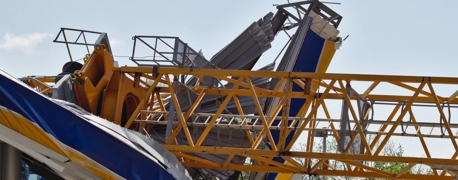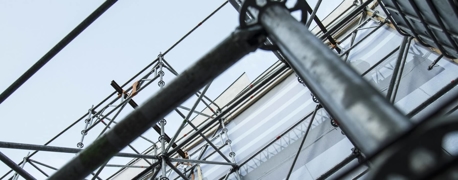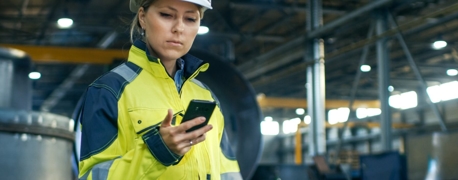Crane Accident Statistics

Cranes are commonly used on construction and industrial sites to lift and move heavy objects. While cranes are an invaluable tool, they are also extremely dangerous if not operated safely. Because of their size and purpose, cranes present a clear danger to the crane operator and other workers and visitors to the site.
Crane Accident Statistics
The most recent data on crane accidents from the Bureau of Labor Statistics dates back to 2006. In that year, there were 72 fatalities caused by crane accidents. Over the 10 year period from 1997-2006, crane accidents were responsible for 818 workplace fatalities. From 2003-2006, Texas led the nation in the number of fatal crane accidents.
Below are the top four states in terms of fatal crane accidents over that four year period.
- Texas – 42 fatalities
- Florida – 27 fatalities
- California – 25 fatalities
- Louisiana – 17 fatalities
Crane accident fatalities occur from a variety of causes. The most common cause of fatalities is workers or bystanders who are struck by an object that falls from the cranes. Other causes include being run over by a crane, falling from a crane, and electrocution.
Below is a breakdown of crane accident fatalities by cause of death:
- Contact with object or equipment – 62%
- Falls – 20%
- Transportation incidents – 10%
- Contact with an electrical current – 8%
What Causes Most Crane Accidents?
Cranes are usually the largest piece of equipment on an industrial site. As a result, more accidents are caused by cranes than any other piece of equipment. But what causes such heavy equipment to malfunction catastrophically? In many accidents, cranes buckle or collapse from excess weight. Each crane comes with strict weight limits, but construction supervisors can either ignore these limits or remain ignorant of them, which leads to a crane accident. That's why many crane accidents are tied to poor training or rushed construction jobs.
Crane accidents occur because of:
- Use of crane for purposes outside of the manufacturer’s specifications
- Improper crane selection
- Poor weather
- Improper crane set up
- Falling debris or other hazardous conditions surrounding the crane
Another well-known cause of crane accidents is contact with power lines. OSHA found that 45% of crane accidents are caused by the boom or crane making contact with energized power lines. Regardless of the cause, most crane accidents can be prevented by following proper safety protocol and adequately training workers on how to operate the crane safely. In fact, 90% of crane accidents are caused by human error and 80% can be attributed to crane operators exceeding operational capacity.
Who Investigates Crane Accidents?
As cranes are work-related machines, publicly-funded investigations of crane accidents are carried out by OSHA. In the private sector, there are numerous investigators and rigging experts who specialize in crane accident investigation. These investigators will often work for defense or plaintiff law firms working on crane accident cases. Here at Arnold & Itkin, we use OSHA investigations as well as our own in-house funded investigations to determine the cause of crane accidents.
Injured in a Crane Accident?
Most crane accidents result in serious injury or death. If you or a loved one was injured or killed in a crane accident, it is important that you understand your legal rights. Crane accidents can be complex, as there are often numerous parties who may be liable. In order to protect your legal rights, it is advisable to contact an experienced crane accident attorney as soon as possible.
At Arnold & Itkin, we represent victims of crane accidents in all 50 states. Our team of attorneys understands the complexities of crane accident cases and is prepared to take any case to trial in order to obtain fair compensation for our clients. We recently won a $44 million jury verdict for a client who had his leg amputated after being struck by a piece of equipment that fell from a crane. Contact our crane accident attorneys for a free consultation about your legal rights.
- Categories


